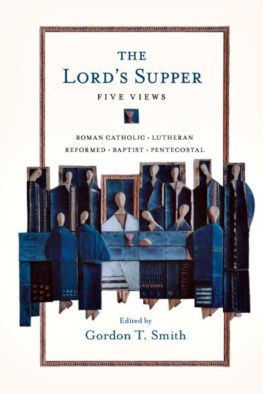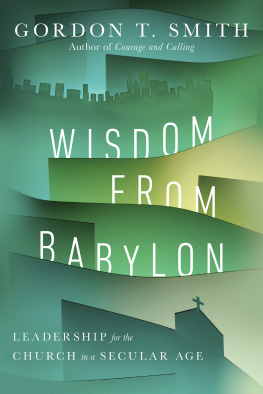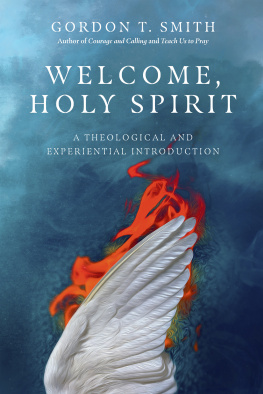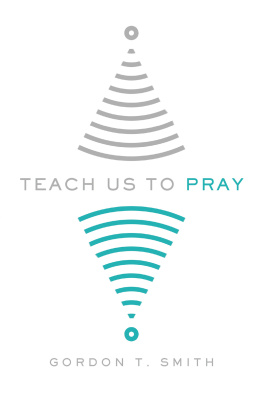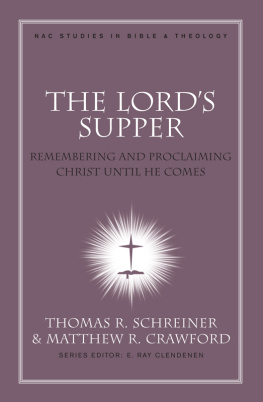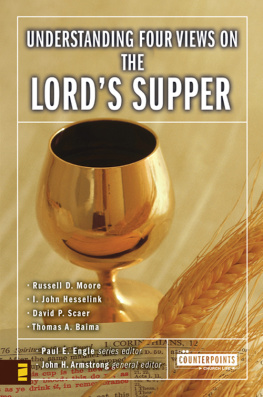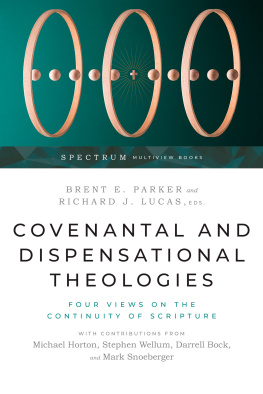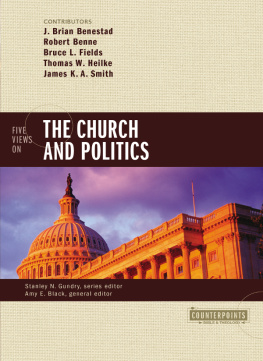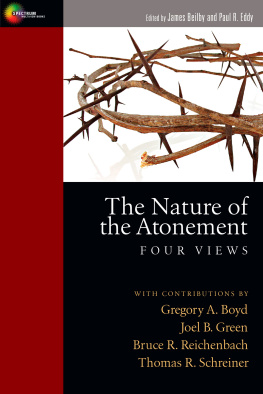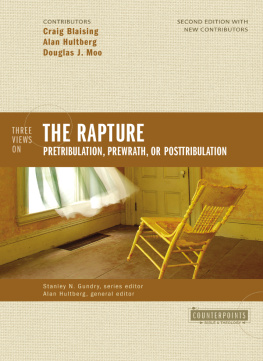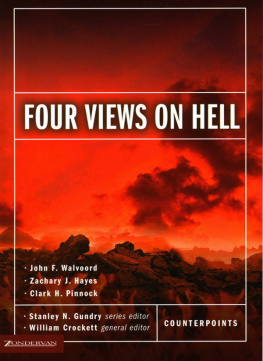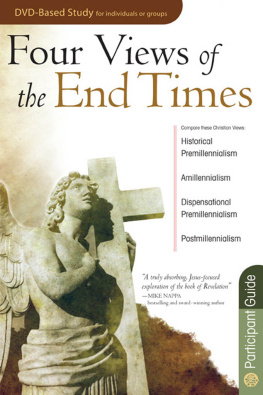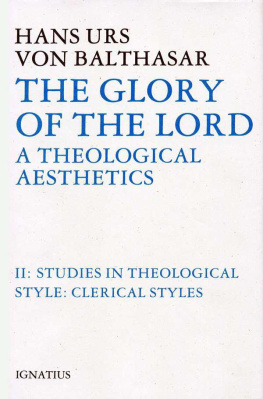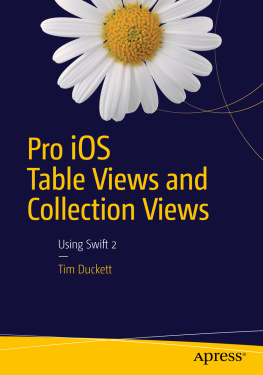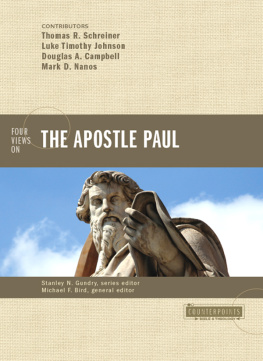




Edited by
Gordon T. Smith
With contributions by
Brother Jeffrey Gros, John R. Stephenson, Leanne Van Dyk, Roger E. Olson and Veli-Matti Karkkainen







.............. 7
........ 13
Brother Jeffrey Gros, F. S. C.
........... 32
........... 34
............ 36
.......... 38
.......... 41
John R. Stephenson
......... 59
.......... 67
Leanne Van Dyk
........... 91
Roger E. Olson
......... 117
Veli-Matti Kkrkkkinen
.............. 145
............ 149
............. 155
............. 159

For several years I have been teaching the course "The Meaning of the Sacraments" at Regent College in Vancouver, and I have often wished for what you have in your hands: a concise summary of distinctive perspectives on the Lord's Supper, written by those who hold these views and with responses by these same authors to the views of others. And now we have it. I am confident that this will be a valuable resource for those who want to learn more about the Lord's Supper and, in particular, to make sense of the diversity of views regarding this central event in the life of the church.
How better to do this than by listening to those who represent each view? If we want to learn how others regard the Lord's Supper, then we need a format that allows each perspective to be represented by someone who holds that view. As the instructor in the class, I can summarize the diverse views for the benefit of my students. How much more enriching to have them listen to someone who truly represents the view under discussion!
There is no doubt that on this important topic-the Lord's Supper-we have some quite strong differences of opinion. That is evident in the essays gathered here. What is vital, then, is that we express our differences only after we have first attended to the other presenter, that we provide a rejoinder only after we have listened well. These essays are offered in the hope not so much that readers' minds will be changed but that there can, at least, be new understandings: that we will better appreciate the views of the other, that we will learn from the other.
One of the challenges for a collection such as this is that even within each of the five views included, there is significant diversity of opinion. We have identified each of the views as the respective perspective-representing the Reformed, Baptist, Lutheran, Roman Catholic and Pentecostal views. But as Roger Olson observes in his essay, there is no single "Baptist" view, so much so that one can genuinely ask if it is even possible to characterize a "Baptist" view, given the diversity of opinion within this camp. While this is especially the case with the view presented by Professor Olson, in some respects this could be said about the other views as well-though perhaps least so with the Roman Catholic view, which has a more centralized doctrinal tradition. But in each case, it is important to keep in mind that the author of the essay is speaking representatively and individually from the perspective with which they are identified-ideally, in a manner that acknowledges some diversity of opinion within that tradition.
Representatives from five theological traditions speak here about the meaning of the Lord's Supper from within that tradition, whether Roman Catholic, Lutheran, Reformed, Baptist or Pentecostal. Some readers may feel a little overwhelmed to read that there are five views-and in many respects, five quite different views. And others will immediately recognize that there are voices not included in this collection: what of the Orthodox, Anglican-Episcopalian, Methodist, and perhaps also the Disciples of Christ, African American and other perspectives? And this is a fair question; indeed, when one of the contributors to this volume submitted his essay, he wondered whether there should not be a sequel: "Five (More) Views of the Lord's Supper"!
Unfortunately, considering additional views in this collection, having more views at the table, would make this into a cumbersome project. Some limit had to be set. We hope that a majority of readers will find this volume helpful in providing at least these views as an aid to understanding their own tradition and as an aid to a greater appreciation of the views of others with whom they might be in conversation on this topic.
This growth has been matched by an emerging Pentecostal theology in the last few years that needs to be both acknowledged and heard-so that those within Pentecostal churches can strengthen their own understanding of the Lord's Supper, and that those of other traditions can better appreciate the emerging voices of Pentecostal theologians.
And this is our objective for all five views: for each essay, we are seeking understanding not merely of the Lord's Supper but also of the views and perspectives of the other, traditions other than our own. And for this, we urgently need to move beyond caricature or a purely polemical engagement. We seek first to understand and to locate the perspective of the other within their theological context. Further, it is important to appreciate that within each of these views there is development. It is essential for us to appreciate that the Roman Catholic doctrine of the Eucharist, or the Lord's Supper, has not been static since the Council of Trent. The Second Vatican Council demonstrated for Catholic Christians the vital connection between the Lord's Supper and the church, for example; and further, there has been an explosion of creative and insightful theological reflection since Vatican II. Thus a volume like this can help readers of other traditions grasp a summary of recent developments and thinking within other views-be they Roman Catholic, Baptist, Reformed, Lutheran or, as noted above, Pentecostal.
Hence, this collection of essays is an exercise in ecumenism: seeking understanding so that the others, even if we differ from them, are a source of insight and learning. And even when, in the end, we differ-as we most assuredly do-what we will inevitably find is that this process strengthens our own understanding of this sacred event in the church's life, the Lord's Supper.
Next page
